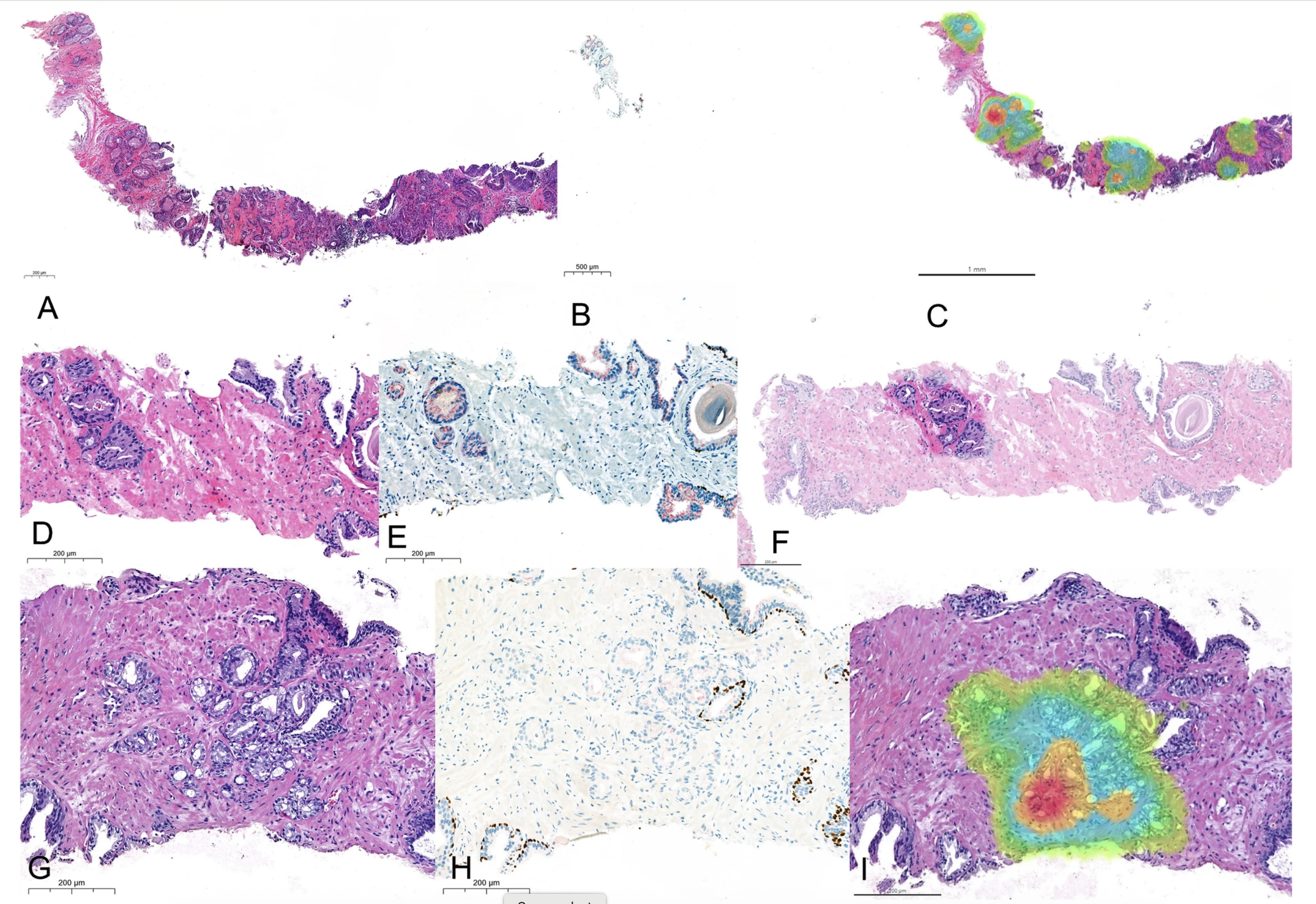Artificial intelligence–assisted cancer diagnosis improves the efficiency of pathologists in prostatic biopsies
22% EFFICIENCY GAINS & 40% FEWER SECOND OPINION REQUESTS
The study’s outcomes demonstrated significant time savings with AI, including reduced reading times, improved laboratory efficiency, shorter turnaround times, and a notable decrease in IHC and second opinion requests.
ARTIFICIAL INTELLIGENCE–ASSISTED CANCER DIAGNOSIS IMPROVES THE EFFICIENCY OF PATHOLOGISTS IN PROSTATIC BIOPSIES
Published in Virchows Archiv
Catarina Eloy, Ana Marques, João Pinto, Jorge Pinheiro, Sofia Campelos, Mónica Curado, João Vale & António Polónia
Volume 482, pages 595–604, (2023)
ABOUT THIS STUDY
The study was designed by Institute of Molecular Pathology and Immunology of the University of Porto (Ipatimup) to assess how the use of Paige Prostate Detect and Paige Prostate Grade & Quantify could impact pathologist performance in a fully digital laboratory.
THE RESULTS
A group of 4 generalist pathologists evaluated a retrospective cohort of 105 consecutive prostate needle biopsy whole-slide images in 2 phases: first without support from AI, and then after a washout period, assisted by AI. Performance characteristics including diagnostic accuracy and concordance, slide read time, IHC requests, and second opinion requests were evaluated.
Using Paige Prostate, pathologists improved their sensitivity and specificity across all histologic grades and tumor sizes. Accuracy gains on both benign and cancerous whole-slide images could be attributed to Paige Prostate, which correctly classified 100% of the whole-slide images showing corrected diagnoses in the Paige Prostate assisted phase.
21.9% reduction in slide reading times in benign and malignant cases
32.4% fewer atypical small acinar proliferation (ASAP) reported
24.7% reduction in IHC requests for cancer cases increase in pathologist specificity
17.3% reduction in IHC requests for non-cancer cases
39.2% reduction in second opinion requests
With its high sensitivity and negative predictive value, Paige Prostate Detect serves effectively as both a screening tool and second-read support. It has been shown to reduce the need for additional IHC staining, shorten reporting time, and preserve tissue which can be particularly valuable in small biopsies with limited cancer representation.


